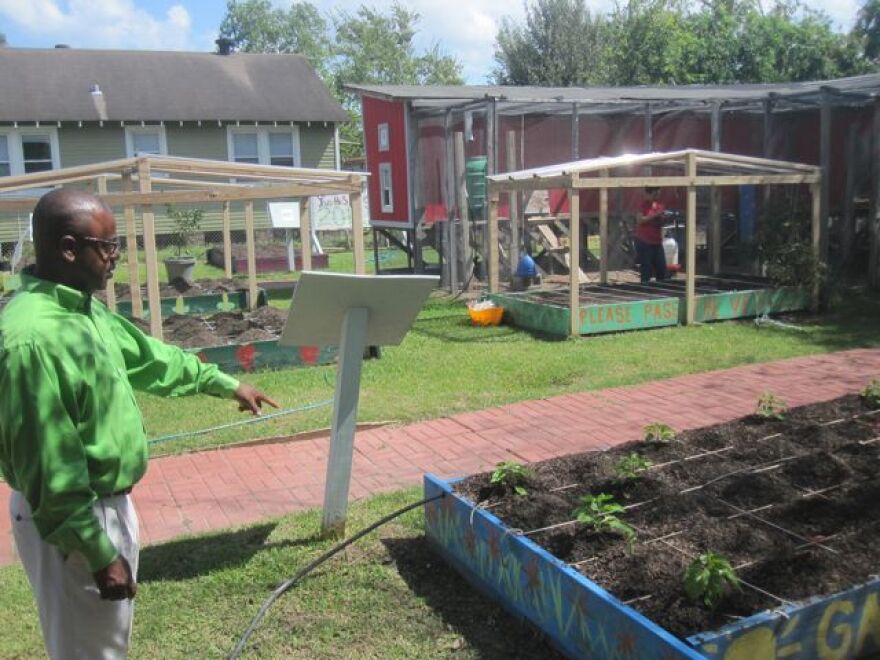Lessons about food, about sustainability and about community are taking root in urban farming plots across the city, and NOLA Green Roots is helping develop a network among them.
New Orleans resident Anastasia Joyner had a certain reputation for her way with plants, and it was decidedly not as a green thumb.
“My husband and my mother would bring home different plants and I would try to help them out, but they finally banned me from the plants,” she says, laughing.
But on one sunny morning recently, Joyner was working at Wise Words Community Garden, a former vacant lot on a Mid-City side street where vegetables now flourish, chickens peck and cluck and lessons about food, about sustainability and about community are taking root.
“We get to meet so many people from a diverse background, and learn about each others strengths and weaknesses, and pull upon the strengths and work on the weaknesses,” says Joyner. “I’ve met some of my best girlfriends working in the garden.”
Wise Words Community Garden is one of six urban farming plots under the umbrella of NOLA Green Roots. Founded in 2008, this nonprofit turns vacant lots into community gardens; it offers garden training to school children and adults; and its part of an emerging composting program for local restaurants, households and other gardens.
“Folks always ask us, is NOLA Green Roots a community garden? No, we’re just the engine that works with these community gardens,” says Joseph Brock, founder and director of NOLA Green Roots.
For Brock, the group’s mission can be boiled down to four words.
“Sustainable communities through gardens,” he says. “So the only way we’re going to be sustainable is by learning and by teaching folks how to do it, and so that’s what we do and we just use the gardens to do it.”
NOLA Green Roots helps local community gardens develop with technical assistance, workshops and a new software tool called Garden Manager, which tracks garden yields and distribution, volunteer participation and other data. The group also pools the efforts of these small gardens, to help them make the biggest impact. Residents pay a monthly fee to become members of NOLA Green Roots, they agree to volunteer their time helping maintain their local gardens and in return they receive a share of the produce from all of the gardens in its network.
“It has to be a joint effort. If there’s one little bitty community garden, like we once had, it’s very difficult to feed so many people. But being together helps us to feed a lot of people,” says Brock. “What’s so unique about it is, the sense of knowing your neighbor. That’s the whole purpose of all this. Knowing your neighbor plus knowing where your vegetables actually come from.”
That’s been important for Joyner too, who says she’s concerned about pesticides and genetically modified foods. Now, she takes real pride in bringing food to her family that she had a direct hand in growing.
“My family is eating so much healthier. We always go toward the basket products first and then only fill in from the grocery stores,” she says. “NOLA Green Roots I’m able to eat naturally grown produce, herbs, and some of the best eggs I’ve ever had in my life. I look forward to the eggs every single time.”
Learn more about NOLA Green Roots at www.nolagreenroots.com.





